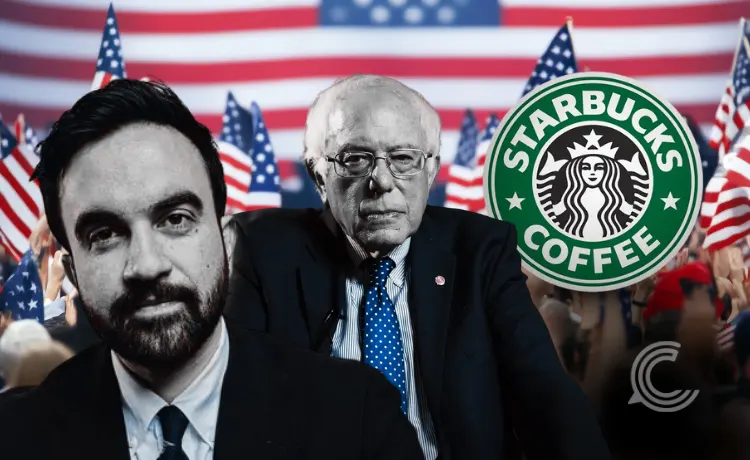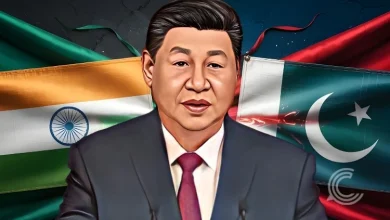How Mamdani, Sanders, and Others Are Amplifying Starbucks’ Strike

Key Points:
- The open-ended ULP strike, launched by Starbucks Workers United (SWU), initially involved over 1,000 unionized workers across at least 65 stores in over 40 U.S. cities
- Prominent politicians, including Senator Bernie Sanders and Zohran Kwame Mamdani, are actively urging the public to stand in solidarity with Starbucks workers and honour the picket lines
- The workers’ demands center on achieving higher take-home pay, securing better and more consistent working hours to qualify for benefits, and resolving hundreds of alleged Unfair Labor Practice charges filed against the company
The national Unfair Labor Practices (ULP) strike initiated by Starbucks workers, coinciding with the company’s high-traffic ‘Red Cup Day,’ has escalated the ongoing labor dispute beyond the confines of the coffee shops.
The action, known by the union as the ‘Red Cup Rebellion,’ has drawn significant attention, but its reach into the public consciousness has been amplified by the vocal support of prominent political figures, notably New York City’s Zohran Kwame Mamdani and Senator Bernie Sanders. The public calls for a customer boycott are transforming a labor dispute into a high-visibility, national solidarity movement.
The Power of the Picket Line and the Public Figure
For the thousands of baristas represented by the SWU, the decision to strike comes after months of stalled contract negotiations. The union claims that Starbucks has “stonewalled” progress by refusing to put forth new proposals addressing core demands, a stance that they assert constitutes Unfair Labor Practices. The timing of the strike is strategic, hitting one of the busiest sales days of the year, maximizing pressure and media visibility.
The visibility is being leveraged effectively by high-profile supporters. New York City Assemblyman Zohran Kwame Mamdani, a prominent voice for worker rights, took to his social media platform to directly address the company’s customers. He wrote on X: “Starbucks workers across the country are on an Unfair Labor Practices strike, fighting for a fair contract. While workers are on strike, I won’t be buying any Starbucks, and I’m asking you to join us. Together, we can send a powerful message: No contract, no coffee.”
The Call for Economic Justice
The support from Senator Bernie Sanders (I-VT), Chair of the Senate Health, Education, Labor, and Pensions Committee, focuses squarely on the economic disparity at the heart of the dispute. Sanders used the company’s vast profits to make his case for solidarity with Starbucks workers and the customer boycott.
Sanders stated on X: “Starbucks isn’t a poor company. Last year, it made $3.6+ billion in profits & paid its CEO $96 million, while denying workers a living wage and decent benefits. Let’s stand in solidarity with striking Starbucks workers. Don’t cross the picket line.”
This frames the struggle as a classic battle between corporate profits and working-class conditions, resonating deeply with a public increasingly aware of income inequality.
Rep. Alexandria Ocasio-Cortez also expressed solidarity. “Starbucks employees have long fought against consistently unpredictable schedules, short staffing, low pay, and unfair labor practices,” she wrote on X.
This high-level political backing offers the union a powerful, cost-free avenue for public relations. It further legitimise the Starbucks unionisation effort in the eyes of the public and other non-unionised workers. A letter from over 100 US Senators and Representatives also urged the company to “end its union busting and bargain in good faith.”
The Unresolved Issues at the Core
The central demands of the striking baristas remain consistent. According to a press release from Starbucks Workers United, the workers are seeking: better hours to improve store staffing and allow more part-time workers to qualify for benefits; higher take-home pay; and the resolution of hundreds of outstanding ULP charges. Many workers struggle to secure enough hours to meet the 20-hour threshold required for Starbucks’ extensive benefits package, despite the company’s claim of offering a competitive wage and benefit package, as reported by CBS News.
Dachi Spoltore, a barista from Pittsburgh, emphasized the workers’ frustrations, stating, “We’re striking for a fair union contract, resolution of unfair labor practices, and a better future at Starbucks.”
Impact and Outlook
The support from figures like Mamdani and Sanders is significant because it nationalizes the conversation, directly impacting consumer behavior and applying political pressure. While Starbucks spokesperson Jaci Anderson told CBS News that the strike’s operational impact was “minimal” since the union represents a small fraction of the company’s US workforce, experts suggest that in the retail industry, the connection between employees and customers makes “shaming a potentially powerful weapon,” as noted by Rutgers University’s Todd Vachon, cited by AP news.



